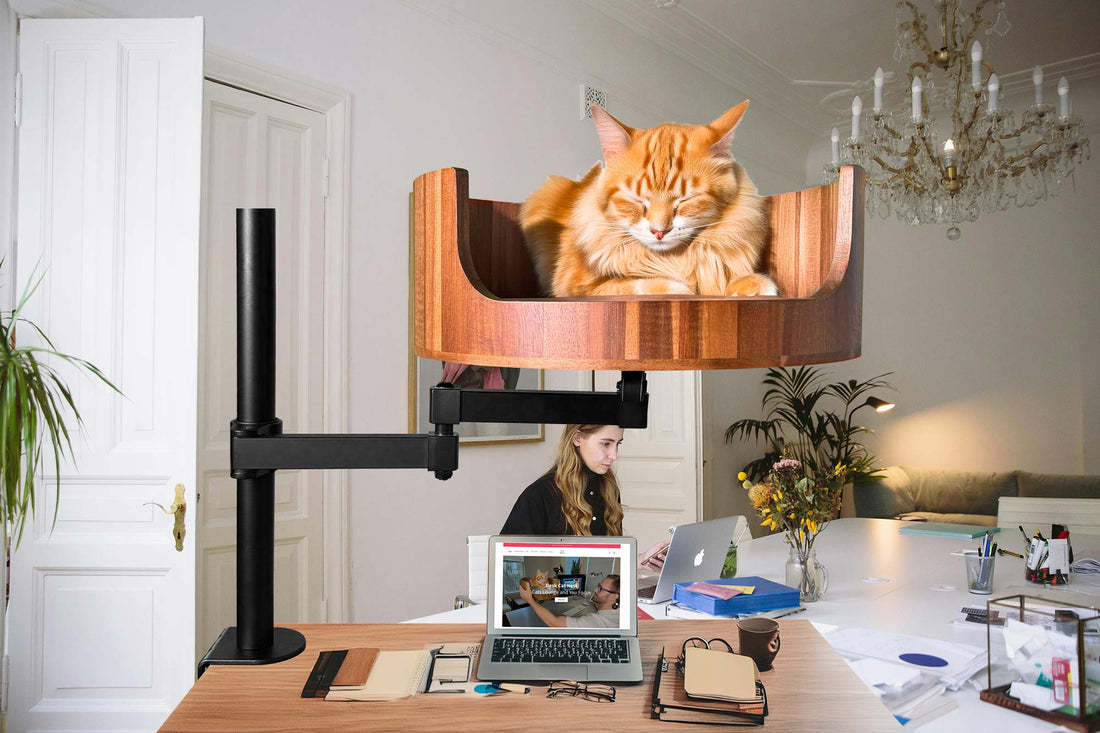
Why Does My Cat Keep Biting Me? Understanding Feline Behavior
Share
Are you constantly finding yourself on the receiving end of your feline friend's sharp teeth? As a cat owner, it can be concerning and frustrating when your cat keeps biting you without apparent cause. Understanding the reasons behind this behavior is crucial in maintaining a harmonious relationship with your furry companion. In this article, we will delve into the world of feline behavior to uncover why cats bite and what you can do to address this issue.
From playful nibbles to more aggressive biting, cats use their teeth to communicate a variety of emotions and needs. By examining the underlying reasons for your cat's biting behavior, you can better interpret their actions and respond effectively. Whether it's due to overstimulation, territorial instincts, or simply the need for attention, there are ways to address your cat's biting habit and foster a healthier bond with them. By gaining insight into the nuances of feline behavior, you can navigate the complex world of cat communication and ensure a happier and more fulfilling relationship with your beloved pet.
1. Cats may bite as a form of communication, play, or defense, so understanding their body language is crucial.
2. Biting can also be a sign of overstimulation, fear, or illness in cats, prompting a need for veterinary attention.
3. Providing appropriate outlets for play and exercise can help redirect your cat's biting behavior.
4. Training and positive reinforcement can help modify your cat's behavior and discourage biting.
5. Seeking advice from a professional behaviorist or veterinarian can offer personalized solutions for managing your cat's biting tendencies.
Understanding Feline Behavior
Cats possess a complex range of behaviors and instincts that may not always align with human expectations. Understanding feline behavior is crucial in interpreting their actions, including biting. Cats use biting as a form of communication, whether to express affection, fear, playfulness, or frustration. By recognizing the underlying reasons for their behavior, cat owners can better address and prevent biting incidents.
Signs of Aggression in Cats
One common reason why cats bite their owners is due to aggression. Signs of aggression in cats include hissing, growling, flattened ears, dilated pupils, and raised fur. It is essential for cat owners to differentiate between playful biting and aggressive biting to address the issue effectively. Aggressive biting can be triggered by various factors such as stress, illness, or lack of socialization.
Training Techniques to Prevent Biting
Training plays a vital role in preventing cats from biting their owners. Positive reinforcement techniques can be used to encourage desirable behavior in cats. For example, rewarding cats with treats or praise when they exhibit gentle play can reinforce good behavior. Additionally, redirecting their attention to toys or scratching posts can help deter biting. Consistent training and patience are key in modifying a cat's behavior.
Seeking Professional Help
In some cases, addressing biting behavior in cats may require the expertise of a professional behaviorist or veterinarian. These professionals can conduct a thorough assessment of the cat's behavior and provide tailored solutions to address the underlying issues. Consulting with a professional can help cat owners develop a comprehensive behavior modification plan to reduce biting incidents and improve the relationship between the cat and its owner.
Frequently Asked Questions
Why does my cat keep biting me?
There could be several reasons why your cat is biting you. It could be a form of play, a way to seek attention, or a sign of aggression. It's important to understand your cat's behavior and look for any potential triggers that may be causing them to bite.
Will the Desk Cat Nest help stop my cat from biting me?
The Desk Cat Nest can provide a safe and cozy space for your cat to retreat to when they feel agitated or overstimulated, which may help reduce the instances of biting. However, it's important to address the root cause of your cat's biting behavior through training and positive reinforcement.
How can I train my cat to stop biting?
Training your cat to stop biting involves using positive reinforcement, such as rewarding good behavior with treats or toys, and redirecting any negative behavior. It's important to be consistent and patient with your training efforts to effectively change your cat's behavior.
Is the Desk Cat Nest safe for my cat?
The Desk Cat Nest is designed with your cat's safety and comfort in mind. It is made from durable materials that are safe for your cat to use. However, it's important to supervise your cat while they are using the nest to ensure their safety at all times.
Can the Desk Cat Nest help with other behavioral issues?
While the Desk Cat Nest is primarily designed to provide a cozy space for your cat, it may also help with other behavioral issues such as scratching or spraying. Providing your cat with a designated space of their own can help reduce stress and anxiety, which may contribute to unwanted behaviors.
In conclusion, providing your cat with a comfortable and secure space, such as a Desk Cat Bed, can help address the issue of why your cat keeps biting you. This cozy and inviting bed not only serves as a safe retreat for your feline friend, but also helps satisfy their need for a designated resting spot. By offering your cat a dedicated space to relax and unwind, you can help reduce stress and prevent unwanted behaviors such as biting. With its plush cushioning and ergonomic design, the Desk Cat Bed is a valuable choice for both you and your beloved pet. Experience the benefits of a happy and content cat by investing in a Desk Cat Bed today.



















































